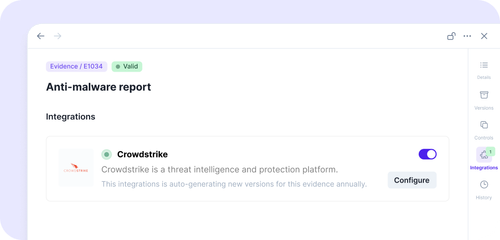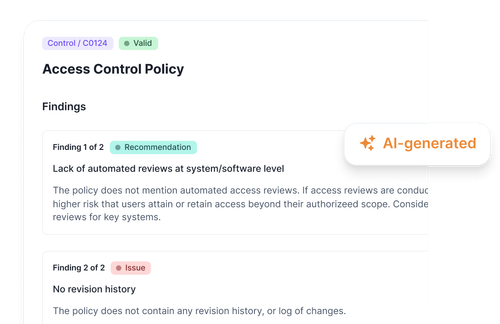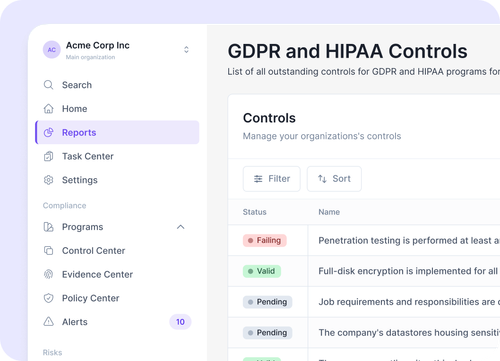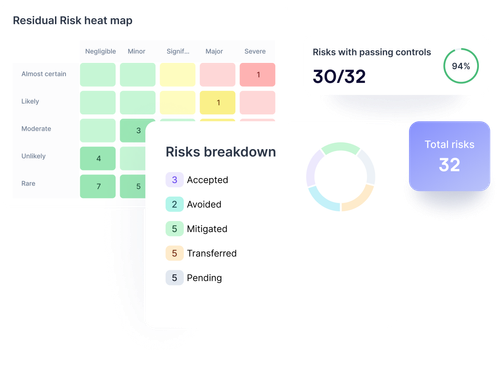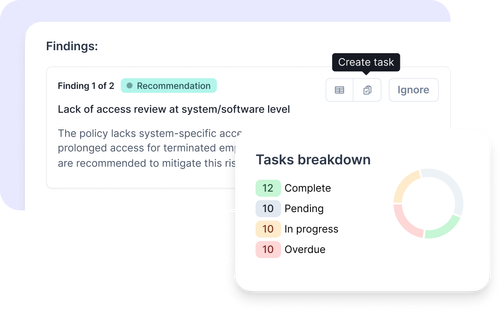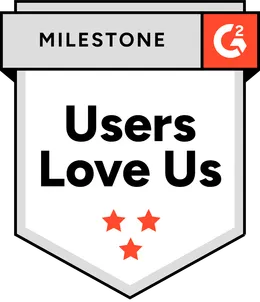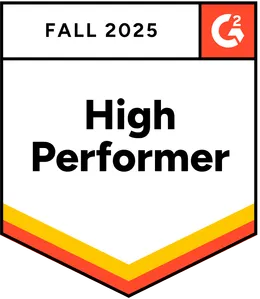Accelerate Audit Lifecycles
Purpose-built automation and responsible AI to reduce audit prep time, boost control ownership, and unify risk management with internal audit efforts
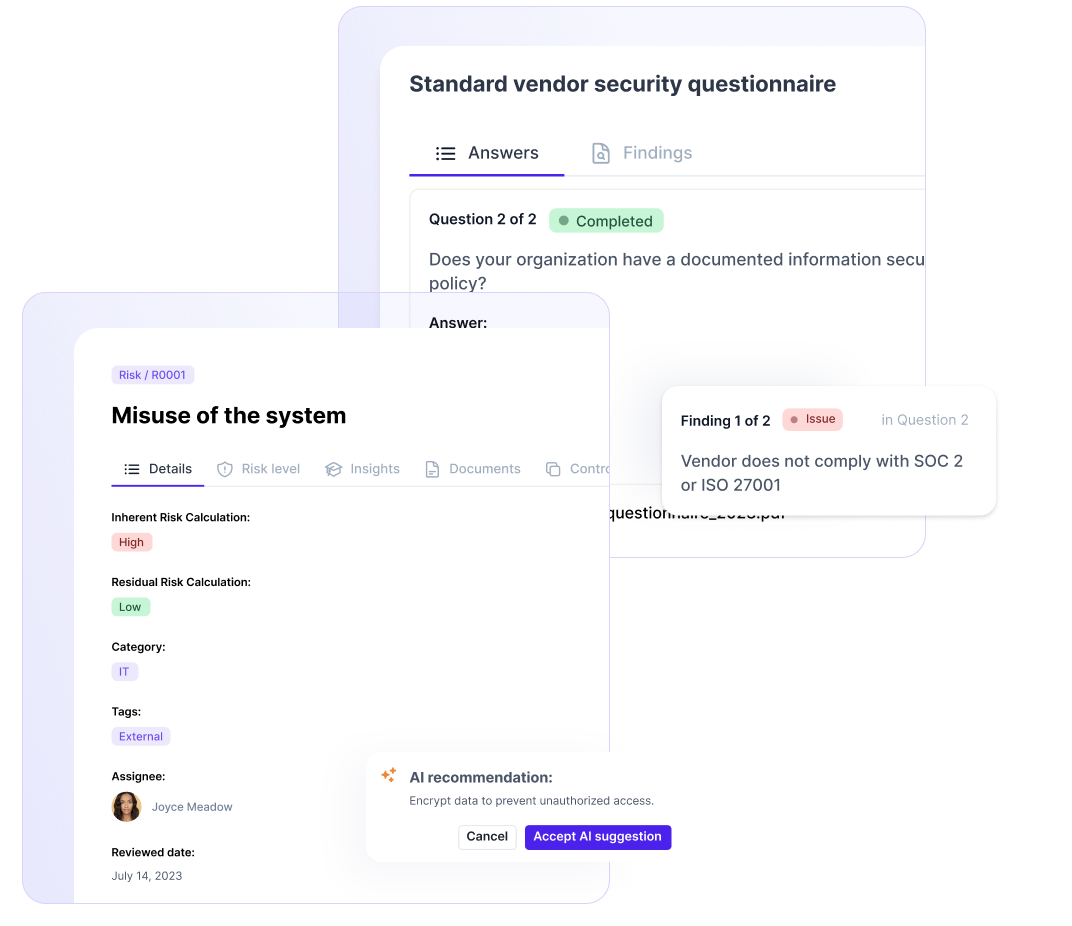
100s of Hours Saved on Audit Prep
Automated evidence generation and compliance checks through seamless integrations with source-of-truth systems
70% Less Manual Work for TPRM
Responsible AI that reviews evidence against your custom criteria to flag non-compliance
Unified Risk Reduction
Unified internal audit and risk management efforts through streamlined risk flagging and task management for audit findings
GRC Leaders Trust Complyance

Lisa D. Norris
Director of Compliance & Privacy Officer, ABB Optical Group
Complyance’s platform is powerful, configurable and easy to use. We’ve been able to implement both off-the-shelf frameworks as well as our own internal custom program audits and assessments with the support of the Complyance team in record time. Our controls, customized audits and assessments are now centralized in one place, using one platform – something we struggled to achieve with other platforms in the past. But the best part is how easy Complyance has made updating these audits annually. Talk about time saved! Complyance’s platform is a game changer!

Noah Webster
Chief Legal & Compliance Officer, Everbridge
What stands out about Complyance has been their partnership with us, and their commitment to making sure we are successful in our compliance/GRC goals When we needed them, they have been just an email or call away. More importantly, they don’t just wait for us to call, they speak up and advise us when they observe something coming around the corner. With their support, we have been able to establish industry leading levels of compliance.
The Tools You Need
Automated Evidence Collection
Simplify audit preparation with automated evidence collection through seamless integrations.
AI-Driven Compliance Intelligence
Use custom AI to review your evidence and proactively alert you to compliance gaps pre-audit.
Comprehensive Audit Reporting
Generate audit reports for Executive Management, sliced and diced as you need with configurable custom fields and advanced filters
Unified Risk Management
Create risks from findings with one click, escalating compliance gaps as needed for appropriate visibility and remediation
Workflow Automation
Create tasks from findings with one click, streamlining your follow-up and simplifying remediation tracking.

